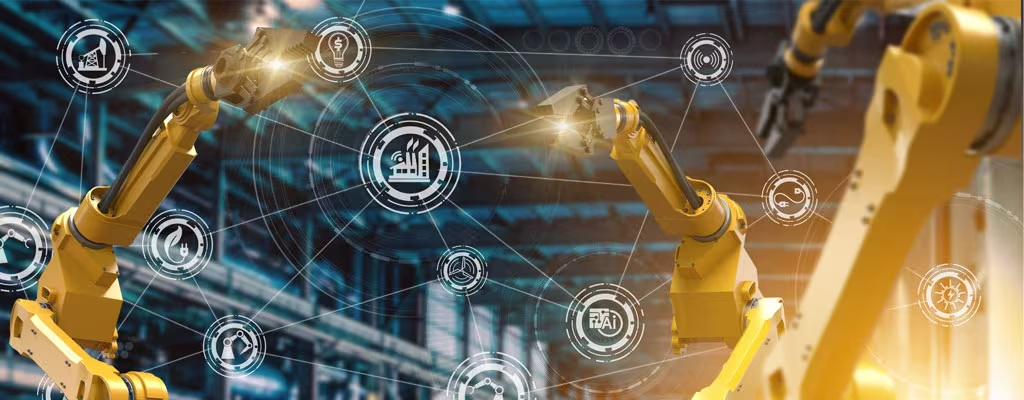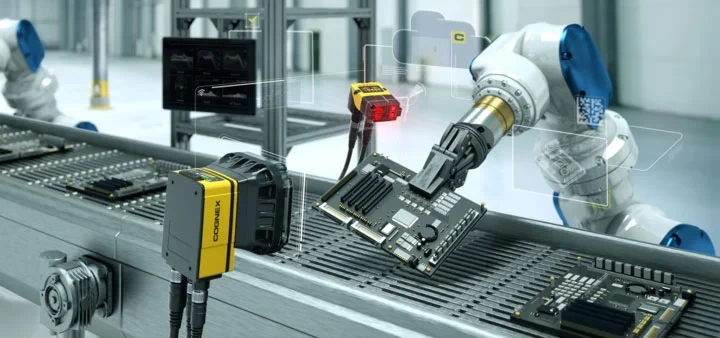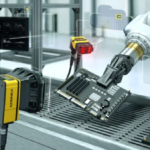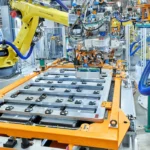In industrial automation, technology is rapidly growing. Industrial sensors are used in factories and manufacturing units or to monitor machine activity during working time to enhance productivity and efficiency. These sensors are especially installed in harsh conditions or environments. Because in industries, dust, noise, temperature, or vibration are common.
In these challenging conditions, choosing the right sensors to maintain machine efficiency is necessary. If the right sensor is not chosen or is installed in the wrong place, then its results can be bad. If you are also looking for the right sensors and implementation, then you are in the right place.
In this blog, we will discuss how to select sensors according to the environment and install them so that they properly monitor the activities of all machines, reducing accidents and errors in your factory and increasing productivity.
Why Do Harsh Environments Need Special Industrial Sensors?
Every factory has a different working environment. Some factories have normal conditions, while in some places the conditions are tough. For example, in factories like steel mills and power plants, there is a lot of heat, and industrial sensors get damaged quickly. As a result, they start giving wrong readings and processing incorrect data, and machines begin to shut down unexpectedly. This often leads to major accidents. That’s why, for such conditions, you should choose sensors that can work properly in every environment and last for a long time.
- High temperatures, like those in steel mills and power plants, need special sensors.
- Wastewater treatment plants or chemical facilities
- Mining and cement production
- Mixture and humidity of food or pharma company environments
- High stress because of heavy machinery equipped with a few sensors.
These industrial sensors process incorrect data readings or downtime, even in machine failures. That’s why choosing the right industrial sensor to maintain the proper working conditions of the industry is important.
What Are The Key Points To Selecting Sensors In Challenging Environments?

While selecting the industrial sensors for your industrial working environment, you need to discuss with your plant manager and engineers to evaluate several factors.
Sensor material durability
The body of sensors should be made of materials that are not affected by cold or heat, such as stainless steel, which can be used in factories and high-pressure places. The sensor should also have a ceramic coating so that it can survive in such an environment.
- Body made with steel or titanium
- Ceramic coating
- Polymeric seals
Temperature tolerance
You need to analyze and properly detect your industry’s temperature and then choose the industrial sensors that tolerate the temperature of your industry.
- Normal sensors tolerate -20°C to +80°C temperature.
- Special high-performance sensor 1000°C tolerant
Choose ingress protection (IP rating)
The IP rating indicates how much the device protects against dust and water. IP67 is fully protected from dust and sand. It has an IP68 rating, so it will survive underwater for a long time. And IP69K industrial sensors are specially used in the food and beverage industries because they have high washing ability and are not affected by hot and cold water conditions.
Chemical resistant
In many chemical industries, workers have to deal with acids and highly dangerous chemicals, which create an environment where sensors get damaged quickly or their performance is affected. That’s why you should check the sensor’s body seal, PTFE, and the special coating inside them.
Vibration and shock resistant
Many industrial sensors are used in places where heavy machinery is operated, and due to the vibration, these sensors can be affected. In such high-shock environments, sensors may become loose quickly, give incorrect readings, or even get damaged. That’s why you should choose sensors that are shock- and vibration-proof. The internal parts of such sensors do not get damaged even when they move due to shocks. Shockproof sensors follow international sensor standards:
- IEC 60068-2-6: If passed, it means the sensor is vibration resistant.
- IEC 60068-2-27: If passed, it means the sensor is shockproof.
What Are The Best Practices For Industrial Sensors In Harsh Conditions?
If you think buying a durable and reliable sensor is enough. You need to install it properly and place it in the correct location. Mount that area; it monitors all machine conditions effectively when they are implemented in the right way.
- Proper installation: The performance of a sensor depends on where and how it is implemented. It is important to install the sensor with proper secure mounting. And ensure that your sensor keep away from direct sunlight and harsh dust or sandstorms. If you install it in harsh conditions, it will not provide accurate and proper data.
- Regular maintenance: chemicals and dust particles continuously affect the monitoring capabilities of industrial sensors. You need to control and regularly clean your sensors across the mounting seals or the connectors of the sensors. It will reduce the downtime and ensure excellent performance.
- Protective enclosures: Where the environment is extremely harsh, your sensor needs extra protection because it is also a machine. To protect it, use stainless steel or polymer housings, especially in chemical industries.
- Backup system: Pay special attention to sensor backups because, for an industry, its data is like its heart, and data loss can cause significant damage. Always use backup sensors and continuously validate data so that the sensor readings can be trusted.
- Adapt smart sensor technology: Nowadays, all of the sensors come with IoT connectivity, which is very helpful for predictive maintenance. These sensors detect all manufacturing errors in the machine before it breaks down, indicating what the problem might be, allowing you to easily prevent downtime in your production.
- High-quality data cable and connectors: In many industries, wires and connectors are often avoided because this is the most challenging error, as it continuously affects sensors and productivity.
Why Does The Unseen Era Stand Out As The Best Partner For Every Industry?
Unseen Era is the trusted partner for every manufacturing, food and beverage, automation, or chemicals industry. We deliver a wider range of products in the industrial automation market. Our unique solutions provide expert techniques to support your installation, maintenance, and upgrading services. We are not just claiming this; our satisfied customers themselves say it.
Here are the major services:
- Color sensors
- Humidity sensors
- Label gap sensor
- Measuring arrays
Frequently Asked Questions About Industrial Sensors in Harsh Environments: Criteria & Best Practices.
Q.1 What are the different industries Unseen Era serves with its products?
A: At Unseen Era, we deliver to a wider industry, delivering our products to the food and beverage industry, manufacturing industries, construction, and more.
Q.2 Why did I choose industrial sensors for my steel manufacturing industry?
A: Industrial sensors analyze all the errors and detect every chronic condition, like temperature, humidity, leaking gases, or machine stress. It enhances the safety and comfort of workers.
Q.3 How do industrial sensors increase workers’ safety?
A: These industrial sensors detect harsh environments in every industry. They reduce the risk of accidents by analyzing gas leaks, high temperatures, or excessive pressure. All of these elements are analyzed through real-time monitoring.
Q.4 What maintenance is required for industrial sensors?
A: You need to check the mounting, connections, or wiring of the industrial sensors. Or regular cleaning in 6 to 12 months to ensure sensors remain accurate and reliable.










 Call
Call Whatsapp
Whatsapp Contact Us
Contact Us